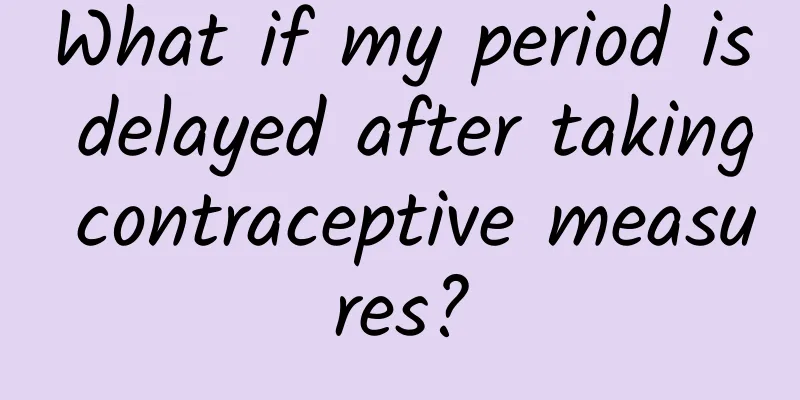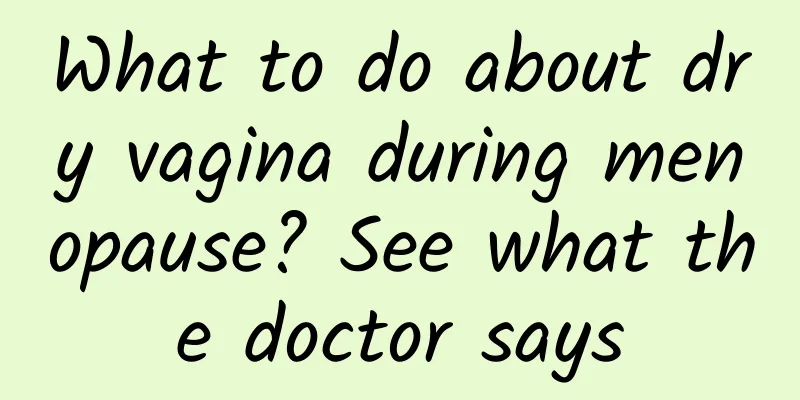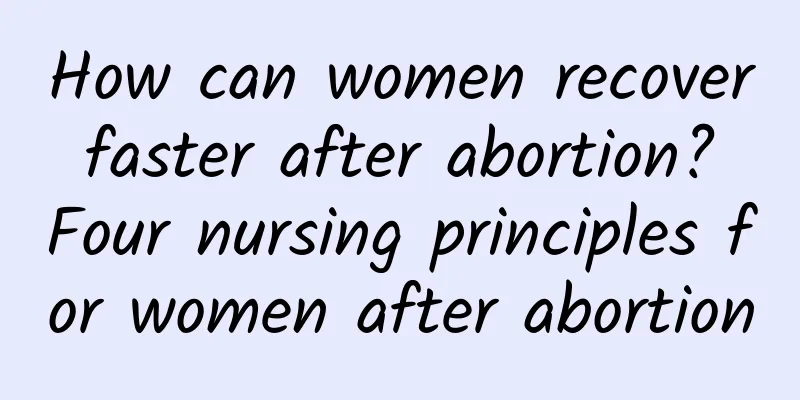What if my period is delayed after taking contraceptive measures?

|
Delayed menstruation after taking contraceptive measures may be related to a variety of factors, including pregnancy, polycystic ovary syndrome, and premature ovarian failure. 1. Possibility of pregnancy: Even if you take contraceptive measures, the possibility of pregnancy still exists. Contraceptive methods are not 100% effective. For example, condoms may break or slip, and intrauterine devices may shift. These situations may lead to contraceptive failure, leading to pregnancy and delayed menstruation. If you suspect pregnancy, you can take a preliminary test with an early pregnancy test strip, or consult a doctor for further examination. 2. Polycystic ovary syndrome (PCOS): This condition is a common endocrine disorder in women that can cause irregular menstruation. PCOS not only causes delayed menstruation, but may also be accompanied by other symptoms such as weight gain and acne. Treatment usually requires endocrine regulation, such as using clomiphene to promote ovulation, combined with lifestyle adjustments such as a healthy diet and moderate exercise. 3. Premature ovarian failure: Premature ovarian failure means that the ovaries begin to lose function before a woman is 40 years old, resulting in a decrease in estrogen and progesterone levels in the body. This change in hormone levels affects the endometrium, leading to delayed menstruation. Treatment may require hormone supplementation, such as progesterone soft capsules or estradiol valerate, but the specific plan should be based on the doctor's advice. 4. The influence of stress and lifestyle: In modern life, stress, improper diet, excessive exercise or weight fluctuations may affect the menstrual cycle. Stress can affect the function of the hypothalamus in the brain, which is an important part of regulating the menstrual cycle. Trying relaxation techniques such as yoga, meditation, and maintaining good living habits can help alleviate these effects. 5. Side effects of medications: Certain medications may also cause delayed menstruation. For example, some antidepressants, antipsychotics, and contraceptives may affect the menstrual cycle during use. If you suspect that medications are the cause, you should communicate with your doctor to assess whether medication adjustment is needed. 6. Importance of health check-ups: If delayed periods persist or recur, a comprehensive health check-up is recommended. This not only helps rule out pregnancy, but also helps identify potential health problems. Communicating with a doctor and getting necessary blood tests or ultrasounds can provide a clearer diagnosis and treatment options. When facing delayed menstruation, don't be too anxious. Understanding the possible reasons and taking corresponding measures is the key. Maintaining good living habits and regular health checks can effectively manage and improve irregular menstruation. |
<<: What is cervical hypertrophy? Does it need treatment?
>>: I have had stomach pain for a few days before my period. Why haven't I had my period yet?
Recommend
Patients with ovarian cysts need to understand their examination methods
Ovarian cysts are very harmful and can endanger t...
Can I drink fish maw chicken soup after having an abortion?
Abortion refers to artificial abortion. After art...
The best method of hemostasis in patients with anovulatory functional uterine bleeding
Women with anovulatory functional uterine bleedin...
Pay attention to the symptoms of uterine fibroids and pay attention to your and my health
What are the main symptoms of uterine fibroids? H...
Jia Jingwen's secret to staying young: exercise to reduce body fat and maintain youth
How to keep yourself in the best condition and ma...
What medicine should I take for thickened endometrium of uterine fibroids? How should I treat thickened endometrium of uterine fibroids?
Uterine fibroids are one of the most common tumor...
What should I check at the hospital for irregular menstruation?
What should I check at the hospital for irregular...
Learn about the common symptoms of adnexitis with experts.
Do you know the common symptoms of adnexitis? We ...
Eat less rice dumplings during Dragon Boat Festival to avoid excessive calories and sodium
The Dragon Boat Festival is approaching, and hund...
What should I do if my vaginal discharge is like yogurt? Check it out in time
It is not normal for vaginal discharge to be like...
What are the dietary precautions for congenital absence of vagina?
It is necessary for everyone to understand what t...
Chickpeas are a good starch for reducing sugar! 2 great tools for weight loss! Chickpeas vs. brown rice and quinoa: these nutrients win big
Many female celebrities such as G.E.M. and Alyssa...
How is pelvic inflammatory disease diagnosed?
Among many gynecological diseases, pelvic inflamm...
What are ovarian cysts and what are their symptoms
What are ovarian cysts? What are the symptoms? 1....
How to eat after pregnancy with uterine fibroids
If you are diagnosed with uterine fibroids during...









